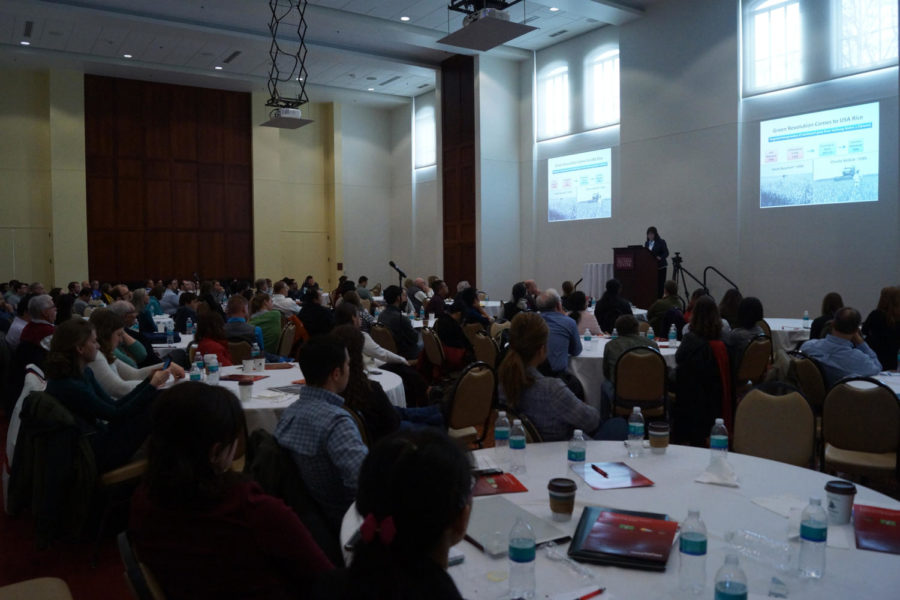History, evolution discusses at plant breeding symposium
Dr. Anna McClung, the USDA-ARS Arkansas, talked about the exploration of rice germplasm for utilization in the southern U.S. at the 2nd Annual R.F. Baker Plant Breeding Symposium. This event took place March 4 at the Alumni Center.
March 5, 2015
Iowa State hosted one in a series of plant breeding symposiums put on by the plant breeding graduate students and sponsored by DuPont Pioneer Wednesday at the Alumni Center.
The symposium consisted of several distinguished speakers from universities around the nation, as well as posters that displayed the graduate students’ work.
The event brought people from different interest areas together to share ideas, said Matthew Dzievit, graduate student in plant breeding and an organizer of the event.
The speakers covered a variety of educational topics, such as corn, canola, soybeans, rice, wheat and sorghum, which attracted a diverse audience.
A group of graduate students in plant breeding from the University of Minnesota came to the event to preview what their symposium would be like in late March, as they are also included in the series.
Speakers discussed the history and evolution of plant breeding along with their research in germplasm, the foundation for plant breeding and genetics development.
A goal of the symposium was to make students aware of the development and improvement of the evolution of plant breeding, said Arnel Hallauer, a speaker on the origin and development of corn and a retired agronomy professor.
Because the symposium covered a variety of subjects, the audience was exposed to areas outside of their niches.
“You can’t just read all of these things,” said Sudhansu Dash, peanut researcher at Iowa State. “This is how you think outside the box. You can’t think outside the box just spending your time doing your own work.”
This event was an opportunity for some of the graduate students to think outside the box as well.
“We [graduate students] are learning how to talk to these important speakers and invite them to come and to organize food and work together as a team to pull this off,” said Chantal McCabe, organizer of the event and a plant breeding graduate student.
The event showcased the work of graduate students in plant breeding and the six speakers in an educational manner, offering new information and ways of thinking.







